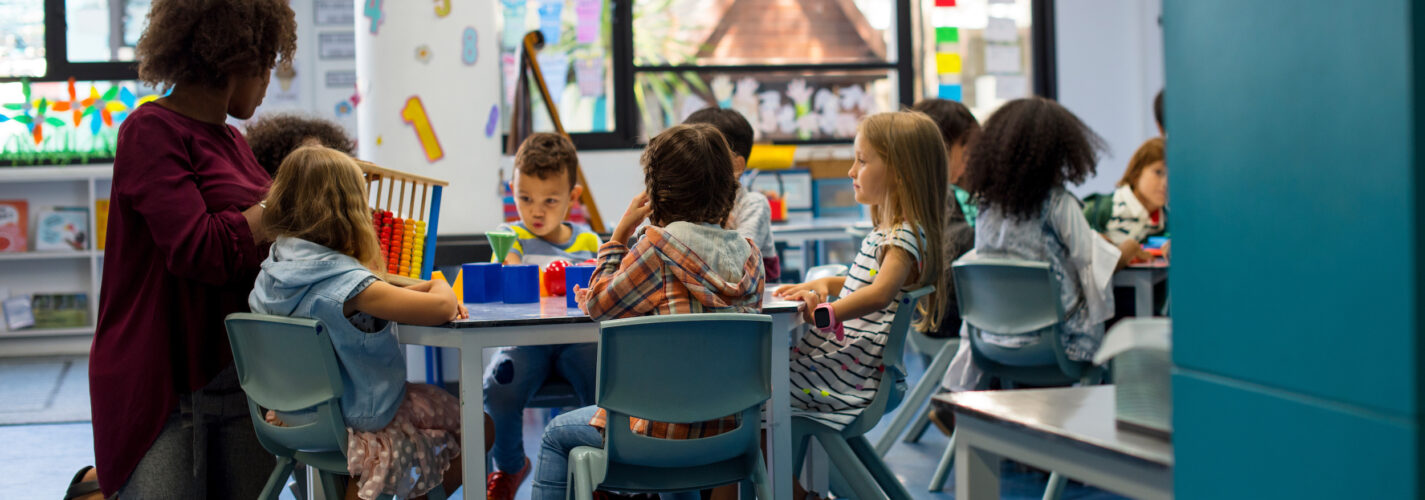Going Backwards on PreK-3 Suspensions & Expulsions
By Josh Crosson
After years of advocacy to improve school discipline in Minnesota, this year is poised to bring meaningful improvements to the guardrails and alternatives to suspensions, helping close the school to prison pipeline. Unfortunately though, some last hour amendments threaten to undermine this progress and even move us backwards in some cases.
Suspending our youngest learners has measurable, long-term negative consequences, including decreased student outcomes, graduation rates, and poor school climate. Not to mention, Minnesota has a long-documented history of disproportionately suspending and expelling students of color and students with disabilities. Per a 2018 study released by the Department of Human Rights, Black students, who made up about 10% of Minnesota’s school enrollment, were involved in nearly 39% of the state’s disciplinary incidents. In contrast, 67% of enrolled Minnesota students are white, but only 35% of all incidents involved white students.
That’s why, in 2021, the Minnesota Legislature moved to end suspension for pre-K students, and are aiming this year to expand that policy through 3rd grade. A proposal from Rep. Ruth Richardson and Sen. Alice Mann made quick progress through committee, with support from the Minnesota Department of Education and the Governor’s Office.
But at the last hour, exemptions and amendments to the proposed bills were added that not only weaken the original proposals, but could also take steps backward from where we are today on student discipline.
Amendments Erode Progress
The current ban on pre-K suspension, which would be expanded through third grade, prohibits schools from removing a child from school for longer than 24 hours. It does allow for expulsions for more harmful circumstances where there is an ongoing serious safety threat, but only after a school has exhausted all other strategies. Rep. Richardson and Sen. Mann have led the charge to expand the prohibition on exclusionary discipline to cover grades preK-3, but that work could be eroded after a series of amendments.
On the Senate floor, an amendment was adopted that creates loopholes allowing schools to suspend preK-3rd grade kids in certain circumstances, despite the intent of the bill authors. This change would not only erode the intended expansion, but take a step backwards for preK kids. The amendment, which was adopted by a voice vote in the Senate, would allow suspensions when children grades preK-3rd cause a danger to people or property. This vague provision unwittingly blunts the previous, clearly-defined rules, making the decision to suspend a student subjective and open to wide interpretation. Under the original proposal, schools would be asked to use nonexclusionary interventions and supports for children before they are dismissed—but under the Senate amendment, a student who breaks their pencil in a moment of frustration could be removed from the classroom on the basis that they are a danger to property.
On the House side, a different but equally troubling amendment was adopted during floor debate. While current law encourages administrators to develop a readmission plan after a student is excluded, the amendment would require this to happen before a student may return to school. In other words, students are penalized if school leaders do not create a readmission plan. There is no timeline or right afforded to the student—inaction or delays on the part of administration, whether intentional or unintentional, would cause direct harm and additional lost learning. Students and families would have no recourse or due process if their child is never allowed back to school. This would not only extend their exclusion and exacerbate their learning loss, but eliminate many of the rights parents have in petitioning their districts and the state against unfair expulsions.
The Good
Despite these amendments, there are still signs of important progress at the Legislature. Both the House and Senate prohibit withholding recess from students, except in specific circumstances. And, they also move to prohibit the use of seclusions – the practice of confining a student alone in a space without the ability to leave – for children from birth through 3rd grade. These would both be major steps forward that we hope legislators maintain in their final bill.
Next Steps to Keep Our Youngest Learners in the Classroom
The case for changing our approach to school discipline is strong—particularly for our youngest learners. In the early grade, students are learning social skills, physical boundaries, and how best to interact with children their own age. Exclusionary discipline doesn’t work and can actually do harm to a student’s social development, their ability to learn, and how they view education and their teachers overall.
Passing strong policy that avoids vague language and staves off unintended consequences is critical. During conference committee, legislators have the opportunity to reconsider harmful policies that move us backward and adopt final provisions that keep our youngest learners in the classroom and support them to build the skills they need for long-term success.

